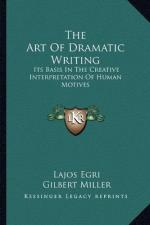
|
| Name: _________________________ | Period: ___________________ |
This quiz consists of 5 multiple choice and 5 short answer questions through Book III: Conflict, Chapters 1 -2.
Multiple Choice Questions
1. What does the author assert is imperative because it shows how a character can move from one emotion to another?
(a) Psychology.
(b) Transition.
(c) Paragraphs.
(d) Chapters.
2. Who advises Juliet to take a strong sleeping draught on the eve of her wedding in "Romeo and Juliet"?
(a) Friar Laurence.
(b) Friar Lille.
(c) Count La Rochelle.
(d) Count Le Mans.
3. Who is Macbeth's friend and a general in the army in "The Tragedy of Macbeth"?
(a) Lennox.
(b) Macduff.
(c) Donalbain.
(d) Banquo.
4. Whom does Macbeth first kill in "The Tragedy of Macbeth"?
(a) Banquo.
(b) King Duncan.
(c) Lennox.
(d) Seyton.
5. Aristotle was a student of _____.
(a) Socrates.
(b) Xenophanes.
(c) Plato.
(d) Heraclitus.
Short Answer Questions
1. What refers to a narrative, either true or fictitious, in prose or verse, designed to interest, amuse, or instruct the hearer or reader?
2. The author takes a look at when a play's story moves from something like love to hate, and claims that in order to have this, things need to be _____.
3. In Book III: Conflict, Chapter 1: Origin of Action, the author claims that every action has components that _____.
4. Who is Nora's husband in "A Doll's House"?
5. Where was Lajos Egri born?
|
This section contains 207 words (approx. 1 page at 300 words per page) |

|




